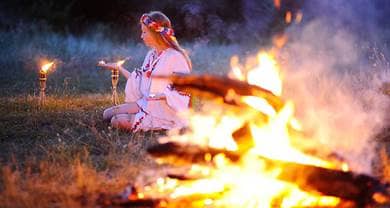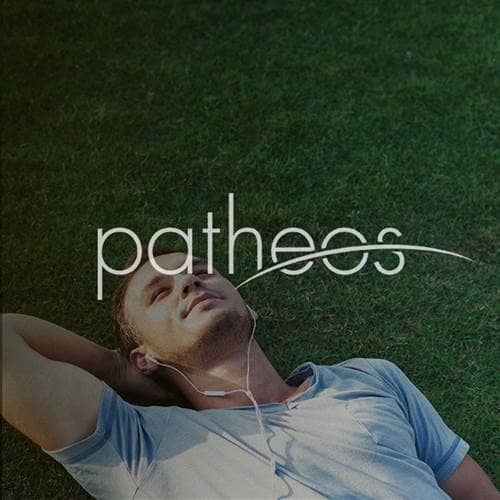- Trending:
- Pope Leo Xiv
- |
- Israel
- |
- Trump
- |
- Social Justice
- |
- Peace
- |
- Love

RELIGION LIBRARY
Paganism
Historical Perspectives
With no single sacred text, no unifying teacher, avatar, or prophet, and no pilgrimage site revered by practitioners the world over, Paganism - as a type of human spiritual activity - is as diverse and varied as the biosphere itself. While most Pagans regard this decentralized diversity as a strength, it leads to significant problems for anyone wishing to understand Paganism as a whole. These problems include two key contested issues: the question of identity (what separates "Pagan" religion from all other expressions of religion or spirituality) and the question of historicity (what is the difference between the Paganism of the distant past, and similar religious activity today?).
The question of identity begins with controversy concerning the concepts of nature and of religion. Does, Paganism, as a "Nature Religion," include any practice that reveres the physical world in any form, or is it more properly understood in a more exclusionary way - only consisting of religions with clear ties to agricultural, fertility, polytheism, goddess worship, or prehistoric practices? Contemporary Pagans see divinity as able to manifest both in the "natural" and "supernatural" realms and able to take many forms, which may be acknowledged by either an individual or a community. Some of today's Pagans do reject the term "nature religion," choosing to emphasize the historic or ethnic roots of their religious practice.
Equally contested is the use of the world "religion" to describe the practices typically included under the aegis of Paganism. Some of these practices are explicitly magical rather than devotional or ceremonial in their orientation. Since Pagans have no central authority, no sacred text, no uniform ethical code, no systematic beliefs, and not even a consensus regarding cosmology and theology/thealogy, perhaps a descriptor other than "religion" would be more accurate: spirituality, spiritual practice, magical practice, or something along those lines.
In other words, so-called Pagan Religions might exhibit some qualities normally associated with religion, but in other important ways might more properly be seen as something fundamentally different from religion as it is generally understood. All this is to say that part of the challenge in understanding Paganism is deciding if, in fact, Paganism is a religion. If Paganism is not a "religion" in the sense that Christianity or Buddhism is, then does Paganism deserve the same protections afforded to all religions by the second amendment of the U.S. Constitution?
Part of the challenge in studying Pagan identity is trying to understand and respect the diversity within the Pagan community. Paganism, Witchcraft, Wicca, Druidism, Shamanism, Hellenic or Egyptian Religion, Asatru, Odinism, Heathenism - each of these concepts are understood in many different ways, by practitioners, outside observers, and detractors. For example, many practitioners have strong (and varied) beliefs regarding the difference between Wicca and Witchcraft - some regard Wicca as a dilution of "true" Witchcraft, while others see Wicca as a religion whereas Witchcraft is limited to magical practice. Similar tensions exist between the understanding of Paganism and Witchcraft, or between Paganism and Heathenism.
This leads to a number of important questions about the relationships between religion, folk practices, and the validity of new spiritualities. When no verifiable lineage or tradition exists, is it valid to speak of a "spiritual" or symbolic tradition (as Philip Carr-Gomm, the current chief of the Order of Bards, Ovates and Druids, claims is the case for the relationship between the druids of antiquity and their modern imitators)?
Because of the diversity within the Pagan communities, these kinds of reflections find no consensus even among the practitioners, let alone outside observers. Due to this wide variety of beliefs and viewpoints regarding questions of identity and authority, contemporary Paganism - regardless of its relationship to the past - qualifies as a "post-modern" religion in the sense that, as a whole, it eschews any claims for overall or objective truth, in favor of "truth" as residing only in personal experience or in socially constructed contexts (which for most Pagan are local and small-scale).
For the outside observer wishing to learn more about Paganism, the most fruitful approach may well be simply to embrace the ambiguities and paradoxes found within the community, basically doing what practitioners themselves do: learn all that one can about the varieties of Pagan belief and practice, recognizing that just about any statement that can be made about this religious path as a whole is subject to interpretation and rebuttal by at least some segments of the community.
Study Questions:
1. Should Paganism’s diversity be seen a strength or weakness? Why?
2. Why might it be problematic to define Paganism as a religion?
3. Paganism has been labeled both prehistoric and postmodern. Why?
4. How can one most effectively learn about Paganism today?










